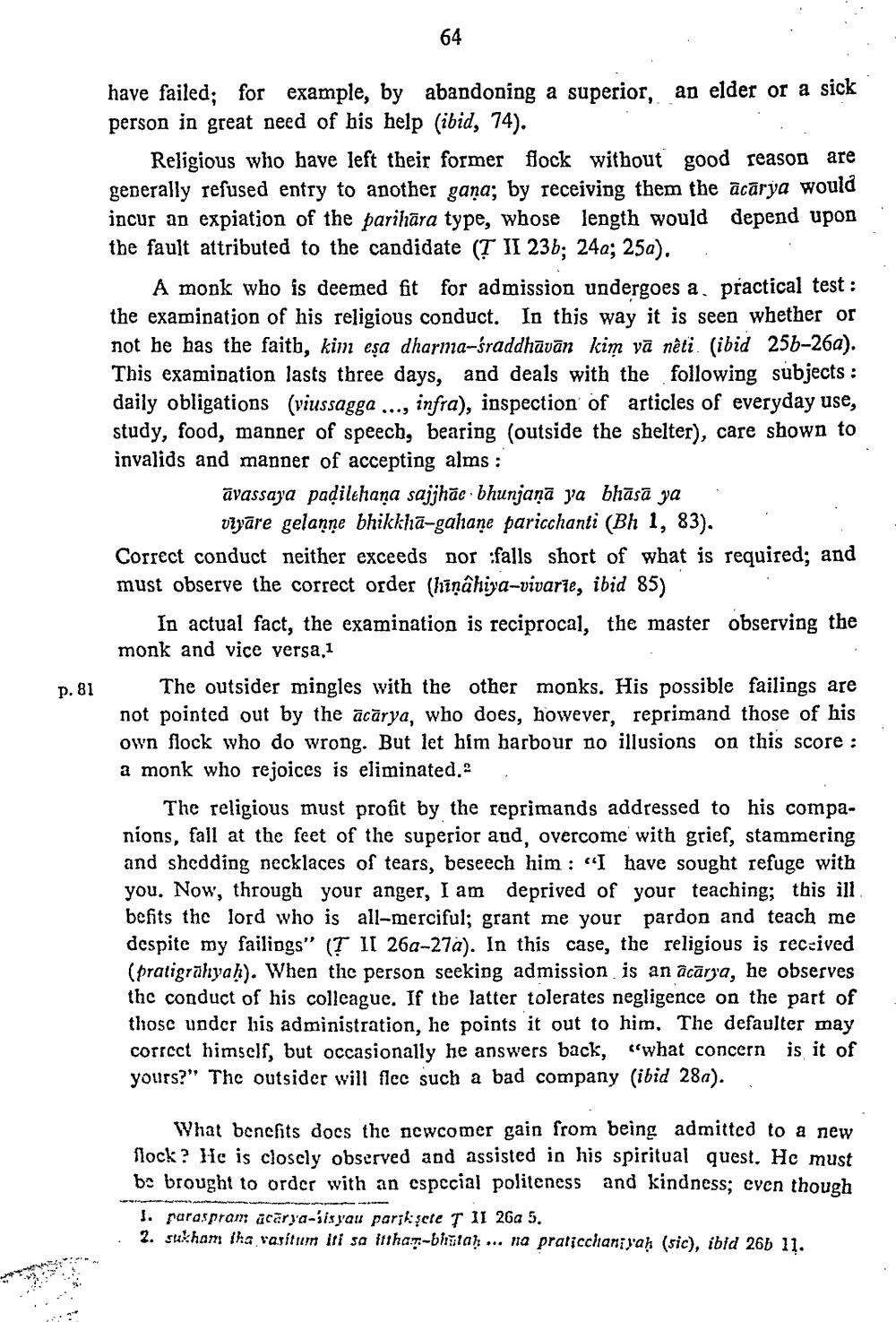________________
p. 81
64
have failed; for example, by abandoning a superior, an elder or a sick person in great need of his help (ibid, 74).
Religious who have left their former flock without good reason are generally refused entry to another gana; by receiving them the acarya would incur an expiation of the parihara type, whose length would depend upon the fault attributed to the candidate (T II 23b; 24a; 25a).
A monk who is deemed fit for admission undergoes a. practical test: the examination of his religious conduct. In this way it is seen whether or not he has the faith, kim eşa dharma-śraddhāvān kim và nêti. (ibid 25b-26a). This examination lasts three days, and deals with the following subjects: daily obligations (viussagga. infra), inspection of articles of everyday use, study, food, manner of speech, bearing (outside the shelter), care shown to invalids and manner of accepting alms:
و...
avassaya paḍilehaṇa sajjhāe bhunjaṇā ya bhāsā ya viyāre gelaṇne bhikkha-gahane paricchanti (Bh 1, 83).
Correct conduct neither exceeds nor falls short of what is required; and must observe the correct order (hinâhiya-vivarte, ibid 85)
In actual fact, the examination is reciprocal, the master observing the monk and vice versa,1
The outsider mingles with the other monks. His possible failings are not pointed out by the acarya, who does, however, reprimand those of his own flock who do wrong. But let him harbour no illusions on this score: a monk who rejoices is eliminated.2
The religious must profit by the reprimands addressed to his companions, fall at the feet of the superior and, overcome with grief, stammering and shedding necklaces of tears, beseech him: "I have sought refuge with you. Now, through your anger, I am deprived of your teaching; this ill befits the lord who is all-merciful; grant me your pardon and teach me despite my failings" (T II 26a-27a). In this case, the religious is received (pratigrahyah). When the person seeking admission is an acarya, he observes the conduct of his colleague. If the latter tolerates negligence on the part of those under his administration, he points it out to him. The defaulter may correct himself, but occasionally he answers back, "what concern is it of yours?" The outsider will flee such a bad company (ibid 28a).
What benefits does the newcomer gain from being admitted to a new flock? He is closely observed and assisted in his spiritual quest. He must be brought to order with an especial politeness and kindness; even though
1. paraspram acarya-iisyau pariksete T 11 26a 5.
2. sukham tha vasitum iti sa itthar-bhitaḥ... na praticchaniyah (sic), ibid 26b 11.




